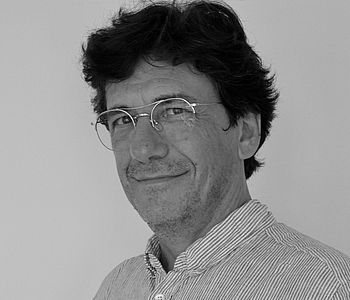Dr Eric Wittersheim | Forscher Fellow

Mutterinstitut
:
EHESS
|
Position
:
Maitre de conférences HDR
|
Fachbereich
:
Anthropologie
,
Ethnologie
,
Global Studies
|
Forschungsthema
Migration, Material Desire and Climate Change in the South Pacific
Projekte
“Where have all the young boys gone?” During my last research trip in Vanuatu, in October 2023, a large part of the people with whom I conducted my researches in the popular neighborhoods of the capital (Port-Vila) were absent. In many neighborhoods and villages of this independent archipelago, the majority of adults have left to work on farms in New Zealand or Australia for a period of several months, through a strictly codified program of seasonal work. Perceived as a negative consequence of global capitalism, this temporary migration can also be seen – and it is my hypothesis here – as a direct consequence of climate change, which makes self-subsistence agricultural practices in Vanuatu more and more random. In 2023, three violent cyclones have hit Vanuatu, ruining fresh produce harvests, the main sources of food and money for the majority of the inhabitants.
The increase of climatic events of this type encourages people to find other means of subsistence. The temporary economic migration towards huge plantations, perceived at first glance as inevitable and as a constraint, therefore also constitutes a boon for the people of Vanuatu, who see it as an opportunity to earn much more money, and much more quickly, than in their own country. In Australia and New Zealands, they work and make money, but they also develop new solidarities, personal projects, new churches, music bands and political initiatives. Between constraints, material desires and ambivalent representations of the future, the study of these temporary migrations among Islanders of the South Pacific offer a stimulating case study to understand the question of climate change and its consequences as a global phenomenon, at different scales and over the long run.
This project draws on my long experience of State building and postcolonial issues in the South Pacific, and specifically in Vanuatu. Fieldwork will be conducted among the very families I have studied for many years, who massively contribute to the worker’s seasonal program. Meanwhile, I will also pay attention to the political initiatives taken by the Vanuatu government to put forward the climate issues in the agenda of international organisations.
Publikationen
Depuis La Présence kanak, édition critique des écrits et propos de Jean-Marie Tjibaou (avec A. Bensa, Odile Jacob 1996, trad. anglaise : ANU 2006), il a publié de nombreux ouvrages dont : Après l’indépendance. Le Vanuatu, une démocratie dans le Pacifique (2006) ; Des Sociétés dans l’Etat (2006) ; Luttes autochtones, trajectoires postcoloniales (avec B. Bosa, 2009) ; Villes Invisibles. Anthropologie urbaine du Pacifique (avec D. Dussy, 2013) ; Supporters du PSG, une enquête dans les tribunes populaires du Parc des Princes (2014) et Filmer (dans) le Pacifique (avec J. De Largy Healy, 2019).
Il a également publié une Introduction à l’anthropologie du politique (avec R. Ciavolella, 2016) et plus récemment, aux Presses de l’Inalco, Le Vanuatu dans tous ses Etats (avec M. Durand & M. Stern, 2024), un ouvrage collectif rassemblant quinze spécialistes de cet archipel considéré comme le pays le plus vulnérable au monde. En parallèle de ses recherches, il a réalisé plusieurs films ethnographiques, dont : Allers-retours à la terre (diffusé par Arte et Planète) ; Grassroots, ceux qui votent (prix du jury au Festival du film océanien) et Le Salaire du poète (prix Bartok au Festival Jean Rouch).